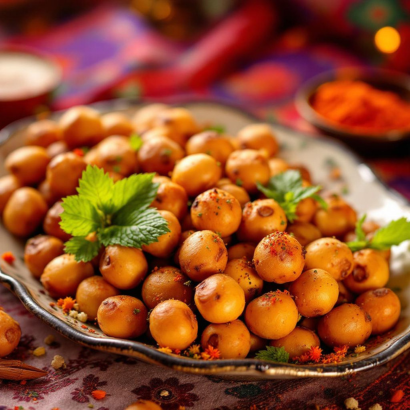With the global food trends further moving towards wellness, clean-label foods, and plant-based nutrition, the fox nuts, or more commonly referred to as the makhana or popped lotus seeds, are finding themselves as one of the promising export commodities. Fox nuts, a traditional snack food or religious offering in India, are now increasingly being demanded across international markets, especially in the Middle East and Southeast Asia.
1. What Are Fox Nuts and Why Are They Trending Globally?
Fox Nuts are the seeds of the Indian native plant Euryale ferox. When processed to be dried, roasted, and harvested, they change form to become light, crisp puffs that are low in fat, high in protein, free from gluten, and full of antioxidants.
Some of their health advantages are:
- Enhanced digestion
- Anti-aging and anti-inflammatory effects
- Low glycemic index (diabetic friendly)
- Weight-loss supportive
These qualities have made fox nuts a high-end health snack, particularly in consumers that look for alternatives to potato chips and manufactured snacks.

2. Middle East Market Overview
In countries in the GCC region such as the UAE, Saudi Arabia, Oman, and Qatar, fox nuts are rapidly gaining traction as a go-to snack:
- Health-Conscious Urban Populations: More young professionals and expats are making a shift towards guilt-free and clean-label snacks. Foxnuts address the need for halal-certified, low-fat, and plant-based foods.
- Ramadan and Celebratory Gifting: Fox Nuts are being increasingly added to high-end date and nut gift sets during Ramadan and Eid.
- Retail Environment: Large retailers are stocking flavored makhana in convenient ready-to-eat packs. Online platforms are also emerging as a new distribution channel.
3. Market Overview: Southeast Asia
In Singapore, Malaysia, Indonesia, and Thailand, fox nuts are hitting the market via health food shops, gourmet stores, and online retailers:
- Fitness and Wellness Boom: Gym enthusiasts, yoga enthusiasts, and wellness-conscious consumers are looking for plant-based snacks.
- Ayurvedic Influence: Ayurveda and Indian-origin diet growth in Southeast Asia is contributing to the popularity of foxnuts.
- Cultural Suitability: Fox nuts are simple to flavor with locally favored profiles like chili-lime, sweet soy, seaweed, and lemongrass.
4. Packaging & Private Label Preferences
The following forms are favored by importers in both markets:
- Retail packs: 20g, 50g, and 100g resealable bags
- Bulk packs: 10kg, 20kg cartons for private-label packaging
- Custom flavors: Spicy, tangy, cheese, chocolate, Himalayan salt, and Thai chili
- Value-added options like organic certification, vegan logos, and recyclable packaging further enhance shelf appeal.
5. Regulatory and Certification Implications
For entering these markets, exporters ought to make sure:
- Compliance with GMP and HACCP
- FSSAI clearance
- Halal certification for the GCC markets
- Lab-testing of shelf life and quality specifications
- COA and phytosanitary certificates
With growing interest on the part of consumers in snackability and nutrition, foxnuts offer a high-growth prospect.
Conclusion
Middle East and Southeast Asian demand for fox nuts is now no longer speculative—it’s growing rapidly. Add the right combination of quality, certifications, packaging, and local partnerships to the mix, and importers can reach into a health-oriented segment of consumers seeking the next super-snack.













